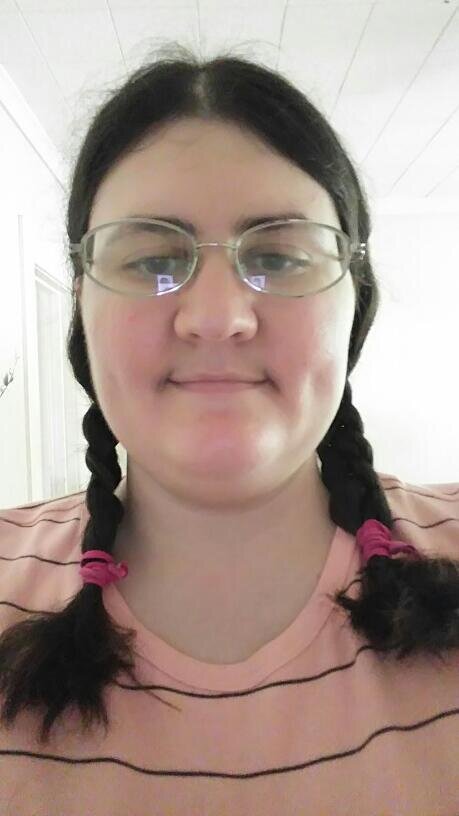How an Instagram friend changed my perspective on autism
An interview with Cara from Paper Boat Autism Acceptance Library
I open up my Instagram direct messages to find a message urging me to pay more attention to the diversity of the Autistic neurotype.
“Autistics like me exist, and we are often diagnosed years or decades late because lists like the one on your website are so narrow. Don’t erase us.”
Cara, Paper Boat Autism Acceptance Library, Hattiesburg, MS
This message, from Cara, creator of Paper Boat Autism Acceptance Library in Hattiesburg, Mississippi, was the start of an Instagram friendship and, for me, an even deeper dive into the Autism Community and thinking critically about how I know what I think I know about autism.
In March, Cara came to me with the idea of breaking down the M-CHAT-R, which is the standard autism screening tool, for Autism Awareness Month in April. Cara’s perspective aligns with many autistic adults who are working to change how autism and therapies to treat difficulties caused by autism are viewed by parents and professionals. I interviewed Cara about her perspectives on the autism screening and assessment process and what she wants parents and professionals to know about autism.
Katherine (K): Can you introduce yourself?
Cara (C): My name is Cara. I'm an artist, a public library assistant, and I run an autism acceptance "little free library" called Paper Boat. I am autistic, diagnosed at age 9... and I absolutely love manatees.
K: Tell me a little bit about why you are passionate about the issues in the autism screening and assessment process.
C: I'm concerned about our current autism screenings because they focus on one type of person: a silent, aloof (usually male) child who grows into an aloof adult with a math or tech obsession. Even so-called "gold standard" screenings leave out a lot of people, especially those without speech delays. The M-CHAT, even the revised version, would never have come close to identifying me as a toddler.
K: What kinds of characteristics should parents and professionals look for to better identify autism (and signs of autism), especially in girls and in those without speech/language delays?
C: Autism isn't always the child who doesn't seem interested in other children. Sometimes it's the child who wants to join in, but joins in very awkwardly or differently. It isn't always the child who doesn't look at you. Sometimes it's the child who comes way too close and stares right into your eyeballs. It isn't always the child who doesn't speak or has delayed speech. Sometimes it's the child who talks much more fluently than you'd expect at their age, but struggles with back-and-forth conversation. It isn't always the child who lacks imaginative play. Sometimes it's the child who escapes into imagination to make sense of the world or cope with not being understood.
K: What do you want parents to know about autism screening and assessment?
C: Most common screenings are at least 10 years old, and based on a stereotypical Rainman or Sheldon Cooper type. Children (girls and boys) who don't fit this outdated profile can easily be overlooked by such screenings.
K: What do you want specialists (e.g., pediatricians, speech-language therapists, etc.) to know about autism screening and assessment?
C: I want pediatricians and other professionals to know those things too. And I want them to use their expertise and influence to advocate for more inclusive, less stereotypical screenings and assessments. Pediatricians in particular need to know that not every autism clinic is skilled at diagnosing girls.
K: Tell me about Paper Boat Autism Library.
C: Paper Boat Autism Acceptance Library is a small mobile library of books about autism acceptance, located in Hattiesburg, MS. We do a book lending day once a month, and a board game night once a month. Most of our events are at a local bookshop, but I'm planning to have one at the zoo in April.
K: Is there anything else you would like to share?
C: I'd like to ask clinicians to read fiction by autistic authors like Elle McNicoll* and Sarah Kapit*. This is a good way to learn to look beyond stereotypes and understand how autistic people really think and feel.
I’ve learned so much from Cara through our Instagram friendship (including this adorable manatee emoticon (:3) ). She has inspired me to take actionable steps toward becoming a better speech-language therapist and autism ally, including editing the wording on my website, researching and asking critical questions about autism screenings, and re-evaluating what I think I know about autistic individuals. Whether you are a parent or a professional, I hope that this interview inspires you to listen to autistic adults and their valuable perspectives.
Follow Cara’s Paper Boat Autism Acceptance Library on Facebook and Instagram or check out one of her events if you are in Southern Mississippi!
*This post contains affiliate links, which means that if you purchase from these links, North Star gets a tiny percent. Thanks for supporting us!

